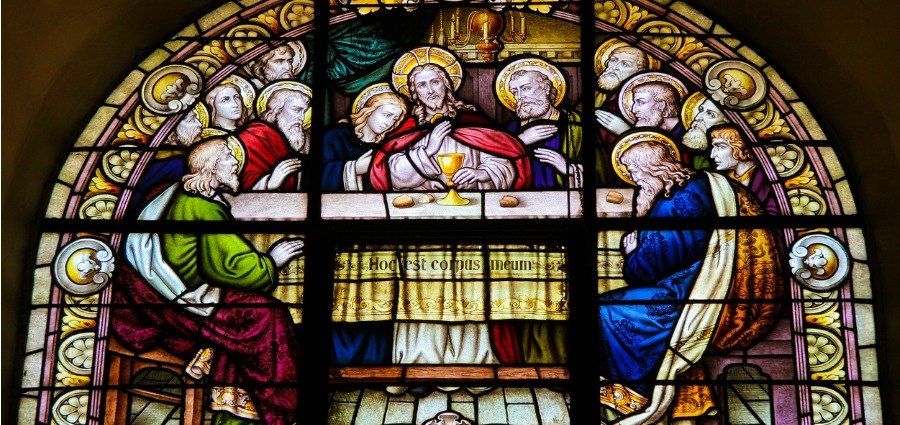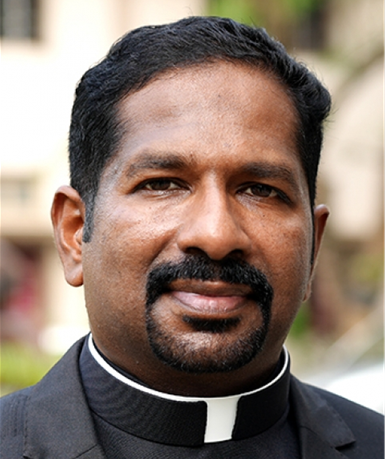
Drink of His Cup - Family Reflection Video
Whether made of earth or metal, cups were widely used by ancient peoples and often appear in figurative speech in the Bible. What gives significance to the cup is not its appearance, but its content. A cup that holds wine, water, or drinks for celebration symbolizes blessings. It sustains life, quenches thirst, and engenders fellowship. The cup represents all the bounty God provides. The Psalmist says, “You set the table before me… You anoint my head with oil; my cup overflows” (Ps 23:5).
But the cup is also used as a dark symbol of judgment: war, natural disaster, suffering, or disease will visit the sinner. God is pictured as punishing the wicked by making them drink from the cup, which makes them reel and stagger (Ps 75:9).
In the Gospel, Jesus uses the word “cup” to signify his impending suffering and death. In the garden of Gethsemane, he pleads, “Abba, Father…Take this cup away from me” (Mk 14:36).
“Can you drink the cup that I am going to drink?” Jesus asked the disciples, James and John. Jesus is asking the sons of Zebedee about their capacity to share his suffering and death. Spontaneous and not aware of the implications, they answer that they can. Unwittingly, they will to live up to their claim.
After Jesus’ death, James was the first of the apostles to suffer martyrdom (Acts 12:2). He was beheaded in Jerusalem. Later, John, the only apostle to die a natural death, is, according to Tertullian, put into a cauldron of boiling oil; miraculously escaping, he is scourged and afterwards exiled to Patmos (Rev 1:9), where he eventually dies.
After giving their lives to Christ, Robert and Dorothy Hoppe wanted to serve Him. When they finished their studies at the Wycliffe Institute of Linguistics, they felt called to serve the Malayo people in Columbia, South America, where they would translate the Word of God into their language. Robert and Dorothy were allowed by the natives to live among them on the condition that they lived in their huts, ate their food, spoke their language, and wore their clothes.
The natives didn’t think Robert and Dorothy would be willing to come under those circumstances. But they were willing, more than willing! Two tiny mud-walled, thatched-roofed, dirt-floor huts became their home. They wore traditional clothes and didn’t cut their hair in keeping with tribal customs. Furthermore, they learned to eat fermented fish, curdled milk, and rat meat. Life among the Malayo people was difficult as these missionaries faced many hardships and hostility. But they lived there gladly, more than willing to serve and suffer for the Lord Jesus Christ.
Robert and Dorothy Hoppe knew what it meant to “drink of the cup” of our Lord. In the most profound sense of its meaning, they were “partakers of the Lord’s Cup...”
And they did it willingly and joyfully. They never complained. They did something the Lord expects all His followers to do: “drink of His cup,” which involves much more than just partaking in a cup of wine at a communion table.
Jesus is asking us, His disciples, if we will “drink of the cup”, if we are willing to endure hardships to follow Him.
- Father Boby's inspirational homily was recorded live this morning during Mass at the Father Peyton Center. Please view the video on our Facebook page. (You don't need a Facebook account to view.)
- To view Rosary prayer and Mass streaming live, please visit our Facebook page at 11:30 am EST, Monday – Friday. Please invite your loved ones to join us too! (You don't need a Facebook account to view.)
About Father Boby John, C.S.C.
Father Boby John, C.S.C., ordained a priest in the Congregation of Holy Cross in 2008, worked as a pastor and an educator with tribal populations in Northeast India for thirteen years. Originally from Kerala, India, Father Boby grew up with his parents and three siblings. He is a dedicated and detailed educationist with a Master's degree in Educational Management and is pursuing a PhD in Educational Leadership. He is currently working as the Co-Director of Family Rosary, USA, and as the chaplain at the world headquarters of Holy Cross Family Ministries, North Easton, Massachusetts.

